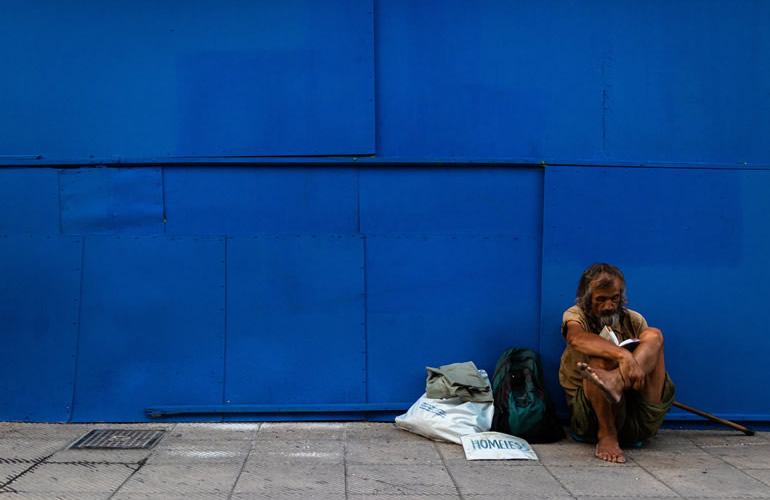A private organization has pledged $100m to fight chronic homelessness in San Francisco, the largest donation of its kind to the city and possibly the biggest privately funded push to end homelessness anywhere.
Despite the efforts of the past five city mayors, homelessness in San Francisco has only appeared to get worse. At any given time, there are roughly 2,000 chronically homeless living on the streets of San Francisco. The “chronically homeless” population, to be addressed by the grant from the Tipping Point Community, is defined as those who have been on the streets for at least a year and who have a mental or physical disability.
“We’re drawing a line in the sand and saying enough is enough,” said Daniel Lurie, the founder of Tipping Point, a poverty-fighting non-profit organization. Chronic homelessness is a “massively complicated issue, but we’re committed to our community”.
Many longtime San Francisco groups, particularly those serving low-income residents and artists, are loudly lamenting the higher housing prices and displacement that the booming tech sector has brought to the city. Lurie said some of the funding for the Tipping Point initiative comes from the tech industry, but other industries are contributing as well.
“We haven’t seen the private sector step up and that is what we’re bringing to the table,” said Lurie. “When you have a booming economy and a tech sector that’s growing, we have to own up to the impact that we’re having.”
The glitz and the grit: Las Vegas homeless stake claim on the Strip
Read more
The organization said it had raised $60m so far and would continue to raise money to devote to both city and nonprofit organizations combatting homelessness.
Over the next three years, the Department of Homelessness and Supportive Housing (HSH) will partner with Larkin Street to connect a minimum of 500 young people 18–24 (and sometimes as old as 27) with “rapid rehousing” services. An additional 450 youth will receive “problem solving” services to prevent or quickly address their housing instability. Here’s how:
Rapid Rehousing — Rising Up follows national best practices for helping people exit homelessness through customized intensive case management and services including: support finding a home, financial assistance for a security deposit or furniture, monthly rent subsidies for up to three years that will phase out as income increases, education and job training, and support finding and securing employment.
Problem Solving — For many young people, a brief, less-intensive set of services can prevent homelessness. Short-term assistance such as one-month rent subsidies, cash for a security deposit, or mediation services will successfully help transition-aged youth avoid homelessness or quickly resolve their housing instability.
Who’s Making It Happen
Ali Schlageter + Alan Guttirez
“The Rising Up campaign is the culmination of fearless advocacy among youth, non-profit providers, philanthropy, and City departments to significantly reduce youth homelessness in San Francisco.” — Alan Guttirez, Rapid Rehousing Program Manager, HSH
“The Rising Up campaign represents an unprecedented investment in youth experiencing homelessness in San Francisco. It’s an exciting time as so many stakeholders are coming together to rally around our young people!” Ali Schlageter, Youth Program Manager, HSH
Together, Alan Guttirez and Ali Schlageter bring decades of compassionate service to San Franciscans experiencing domestic violence, discrimination, and homelessness.
